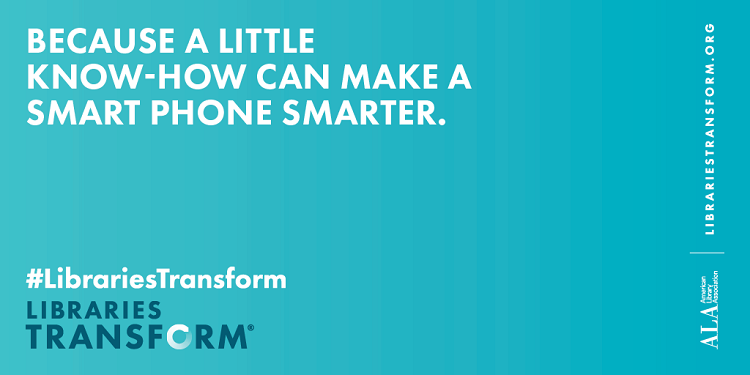It’s Digital Citizenship Week!
Digital citizens positively and safely use technology tools to participate in society (for example, social media). Topics include cyberbullying, online safety and privacy, verifying information, and creating content. Digital literacy plays a very important role as it focuses on the skills necessary to effectively access and interact with various technologies and digital information, such as how to use a web browser or how to critically analyze information found on a website.
The links and webinars listed below are just a few resources to get started thinking about digital citizenship and digital literacy as you work with students and/or public library patrons.

Resources:
- Digital Literacy – Public Library Association
- Digital Literacy Professional Tools – Public Library Association
- 20 Examples of Digital Citizenship – EdTech Update
- List of some specific examples to help better understand what good digital citizenship skills include
- Digital Citizenship Curriculum – Common Sense Education
- K-12 digital citizenship skills lesson plans
- Resources for Digital Citizenship Week – Ask a Tech Teacher
- Virtual Privacy Lab – San José Public Library
- Mozilla Web Literacy: The WebLit Core Curriculum – Mozilla
- Bridging the Digital Divide by Building Digital Literacy Skills – WebJunction
Webinars:
- Let’s Celebrate Digital Citizenship Week: Something for Everyone – edWeb
- “Increase awareness and get students, faculty, and families inspired to learn about media balance, cyberbullying, privacy, and much, much, more!”
- Digital Citizenship – Niche Academy
- “In this free one-hour webinar, Carrie Rogers-Whitehead, founder of Digital Respons-Ability, discusses digital citizenship, the ethical and responsible use of technology. This digital citizenship primer will discuss online safety, digital law and digital health.”
- Digital Citizenship: New Lessons for a Changing World – Common Sense Education
- “This award-winning, comprehensive Digital Citizenship Curriculum covers a range of topics from media balance to cyberbullying to privacy. It prepares students to think critically and use technology responsibly to learn, create, and participate. This edWebinar is designed for all K-12 teachers, librarians, and tech coordinators.”
- Digital Citizenship: New Roles and Responsibilities in the Digital Age – WebJunction
- “A webinar defining ‘digital citizenship’ and exploring ways for public libraries to support services and programming to help grow safe, responsible, and respectful digital environments.”
- Privacy Literacy at Your Library – WebJunction
- Learn about San José Public Library’s Virtual Privacy Lab. “The modules guide users through topics such as social media and security, and provide personalized tips, links and resources that enable them [library patrons] to feel safe and confident online.”
- Is That Real? A Crash Course in Verifying Online Content – WebJunction
- “Dive into the tools and skills that you and your patrons need to verify the authenticity of user-generated content, and learn how to create engaging fact-checking investigations that will empower learners to detect and debunk misinformation online.”
- Digital Literacy Training Tutorials for Libraries – WebJunction
- Learn about GCFLearnFree.org and DigitalLearn.org which “are two resources that provide free digital literacy and technology training tutorials.”
- Using DigitalLearn in Your Library – PLA
- “Understand how to integrate DigitalLearn.org into the library’s digital literacy training efforts.”
- Teaching Patrons to Use Technology: Skills for One-on-One Tech Instruction – Florida Library Webinars
- “In this webinar, learn practical training skills that will help boost your ability to help library patrons with technology questions.”
For webinars and CE: If you would like to earn continuing education (CE) credit and are enrolled in the Nebraska Public Librarian Certification program, please submit a “CE Activity Report Form” after each webinar.
If you have any questions about continuing education, please contact Holli Duggan.

